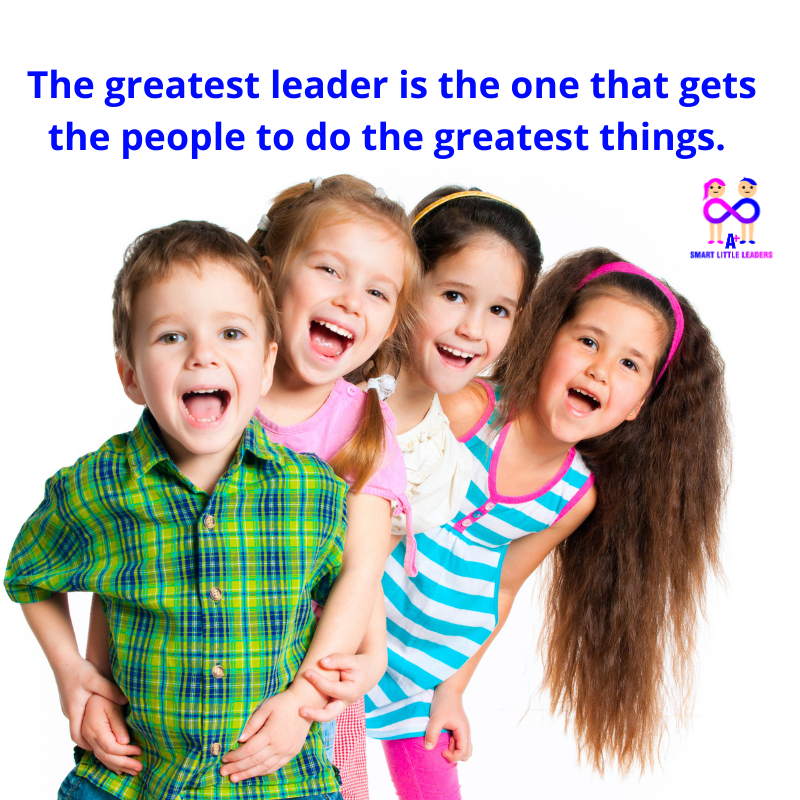AT WHAT AGE CHILDREN DEVELOP SOCIAL & LEADERSHIP SKILLS? By Aelita Archbold
The Human brain is similar to the Universe! This is the most mysterious and undiscovered organ that humans have been gifted with.
Personally, I believe that the popular statement that humans use only 4-5 % of their brains is one of the greatest delusions of humanity. Go and try to find who made this delusional statement and you will not find it.
Now, many leading neuroscientists around the world agree unanimously that the human brain has tremendous potential and is capable to perform incredible tasks.
I am saying this because if someone ever tells your child: “You can’t do that!”, walk away from that “prophet.”
The dilemma is that humans can’t comprehend what great things the human brain is capable of doing. Often, because most of us like to believe in stereotypes that are presented by the mass media. We have a tendency to trust someone we don’t know, rather than to trust ourselves and to learn to listen to our intuition.
Do you remember, what one of the greatest scientists of all time, Albert Einstein said about intuition? He said: “The intuitive mind is a sacred gift and the rational mind is a faithful servant. We have created a society that honors the servant and has forgotten the gift…”
When we talk about physiology and children’s psychology, a child’s behavior and intellect, there are several very important considerations: Boys and girls are not only different physically but develop differently neurologically.
At about 5 months of age while in the mother’s Uterus, all babies receive an amazing hormone bath.
Male babies receive one bath of hormones, while female babies receive two baths of hormones.
And that’s why the female babies left and right brains are interconnected, whereas the male babies’ brain is one sided.
Girls from their birth have more advanced social maturity than do the boys.
Sex differences in the brain are also reflected in a different developmental schedule for the girls and boys.
By most measures of sensory and cognitive development, girls are slightly more advanced; the vision, hearing, memory, smell, and touch are all more acute in female than male infants. They have more advanced verbal skills.
Girl babies also tend to be somewhat more socially adapted.
And now we come to the important question: When do children, actually start developing social skills and showing their leadership skills?
It is obvious that a good leader has good social skills.
Social skills are those we use to communicate and to interact with each other, both verbally and non-verbally, through gestures, body language, and our demeanor.
And leadership skills are those we use to lead others, in order to reach shared goals.
Children who have inherited good social & leadership skills will easily and naturally get along with their peers as well as with adults and are able to create and maintain satisfying relationships as adults.
At what age does a child start developing Social & showing Leadership skills?
I would say that the child’s initial interaction begins in the uterus when the unborn baby learns to interact with its mother.
The child’s developmental interaction really starts, when he/she learns to walk and to talk. Most children have their individual time when they are ready to socialize with other children, and this may be around the age of 3 to 4 years of age.
It also depends on what kind of temperament the child has inherited: extroverts such as choleric and sanguine, or introverts such as melancholic and phlegmatic, a male or female.
It’s scientifically proven that girls develop earlier than boys physically and academically. We know that girls have their menses between 12 and 15 years of age, while the boys develop from 15 through 18 years of age.
Good social & leaders skills are important in all aspects of your child’s life.
The most important way to improve social & leadership skills in your child is by getting out there and practicing them or seek help from a specialist who specializes in leadership development in children and join the A+ Smart Little Leaders™ course.
©2020 All right Reserved


